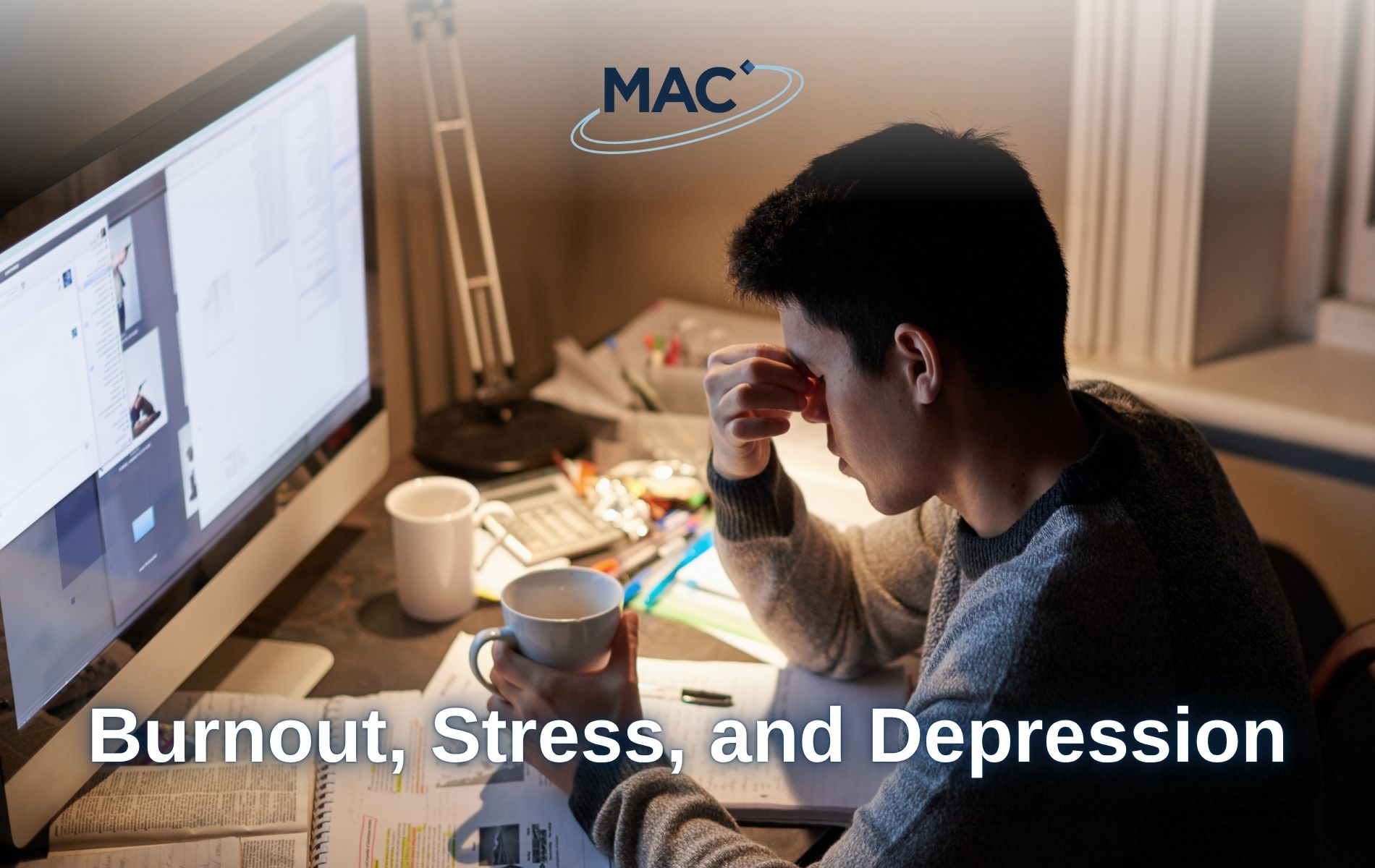In today’s fast-paced world, stress has become a near-constant companion for many. Whether it’s due to work, relationships, or financial pressures, stress can accumulate and evolve into something far more serious: burnout, which if left unaddressed, can be a gateway to depression.
What Is Burnout?
Burnout is more than just feeling tired after a long week. It’s a state of emotional, physical, and mental exhaustion caused by prolonged and excessive stress. One study indicated that up to 66% of employees experience burnout1.
People experiencing burnout often feel overwhelmed, emotionally drained, and unable to meet constant demands. Over time, this chronic stress can sap your energy, reduce your productivity, and leave you feeling hopeless and detached.
Common signs of burnout include:
- Persistent fatigue
- Detachment from work or responsibilities
- Reduced performance and productivity
- Difficulty concentrating
- Sleep disturbances
- Physical symptoms like headaches or gastrointestinal issues
The Impact of Chronic Stress
Stress, in small doses, can be motivating. It can help you meet deadlines, prepare for presentations, or respond to emergencies. But when stress becomes chronic, when there’s no relief or recovery, it begins to wear down the body and mind. In the last year, nine out of ten adults in the UK experienced high or extreme stress levels, and one in five workers needed to take time off due to poor mental health caused by pressure or stress2.
During chronic stress, the stress hormone cortisol remains elevated, which can disrupt sleep, impair memory, and weaken the immune system. Studies have shown that individuals who perceive stress as impacting their health and report high levels of stress have a 43% increased risk of premature death3.
Chronic stress also affects the brain’s neurotransmitters, such as serotonin and dopamine, which are crucial for mood regulation. Over time, this imbalance can lead to emotional numbness, anxiety, and eventually, depression.
Burnout and Depression
Burnout and depression share many symptoms, which can make it difficult to distinguish between the two. Both can bring on feelings of hopelessness, lack of motivation, and emotional exhaustion. However, depression tends to be more pervasive: it affects all areas of life, not just work or specific responsibilities.
While burnout is often situational and may improve with rest or a change in environment, depression is a clinical condition that may require therapy, medication, or other forms of treatment. However, burnout can be a precursor to depression, especially if the underlying stressors are not addressed.
Breaking the Cycle
Recognising the early signs of burnout is key to preventing it from progressing to depression. Here are a few strategies that can help:
- Set boundaries: Learn to say no and protect your personal time.
- Prioritise self-care: Regular exercise, healthy eating, and adequate sleep are essential.
- Seek support: Talk to friends, family, or a mental health professional.
- Take breaks: Step away from work or stressful environments to recharge.
- Reflect and realign: Reevaluate your goals and values to ensure your lifestyle aligns with them.
Improving Quality of Life for Depression
MAC Clinical Research is currently conducting a clinical trial to test an investigational drug for depression with high levels of CRF1 protein; the study medication aims to calm the stress system to ease depression symptoms by blocking the CRF1 receptors in the brain. Please note that you will have a blood test to determine whether you have the specific genetics required to take part in this study.
To be eligible, you must:
- Be aged 18 to 65.
- Have a diagnosis of depression or a GP visit with depression or low mood.
- Be otherwise healthy.
- Not be diagnosed with a psychotic disorder such as schizophrenia, schizoaffective disorder, mania
- Not be diagnosed with bipolar disorder.
Other eligibility criteria will apply. You may receive up to £2495 for taking part in this study.
For more information, visit our Depression Research webpage.
1 Forbes – Job Burnout At 66% In 2025, New Study Shows
2 Mental Health UK – Burnout
3 Health Psychology – Does the Perception that Stress Affects Health Matter? The Association with Health and Mortality




